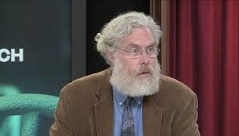What will come after healthy aging? In biotechnology, advances have been so swift over the past few decades, that some scientists have started thinking of ways to tackle aging itself, that ultimate and fatal disease of mankind. Even with some hints that death may not be unavoidable any more – according to some researchers. ‘Deathless aging’, so to speak.
In a series of articles (July 25, July 28 and July 31) we explore the potential of biotechnology to prevent aging. And its personal and social implications.

Healthy aging: don’t pretend it doesn’t concern you
No scientific subject has an impact as profoundly personal as the question of healthy aging. It embodies all hopes, and more to the point, all fears of human life. We have witnessed how the generation of our parents and grandparents struggled with increasing disability. Would it be strange to think that many efforts in the area of healthy aging are secretly also intended to avoid these disabilities in our own old age? Yet, almost all scientific articles that we find on internet treat this issue as if it were some alien body: they classify factors that promote healthy aging, they predict that it will lower costs of health care, and foresee positive economic effects of people living longer in good health who continue to make a contribution to the economy. All this to be found for instance in the curriculum of the Hanzehogeschool in the Netherlands, that spearheads healthy aging in education and research. It is the subject of government policy too, because the growing class of wealthy senior citizens is an attractive target for resorts, cruises and other money spending activities for senior citizens. Death is very rarely mentioned. Whereas we might wonder: what will come after healthy aging? Healthy dying? Why don’t people acknowledge the very personal nature of questions that surround aging?
Let me therefore be clear and personal from the start of this series. At 72, I feel that I have entered the final phase of my life, and I enjoy it. I feel my physical force weakening, and I enjoy it. It makes me enjoy the good things of life more deeply. From time to time I trip over the proverbial cobble laying loose in the street, having trouble to keep my equilibrium, and wonder if there were any loose cobbles when I was young. Although I am in good health, and no problem ever shows up at the doctor, such incidents remind me of my weakening forces, and ultimately of my mortality. I feel that physical strength through life has the form of a bell-shaped curve, but that this does not necessarily apply to mental strength. In the rhythm of human life, each stage makes demands of its own; but in our time, this sense of rhythm seems to have disappeared. I wonder why the idea of wisdom, the privilege of the old age in antiquity, is no longer valued; why the desire to look young extends almost into the age of senility; why society has so much trouble treating the elderly with respect. Would it be far-fetched to surmise that our society is riddled with the fear of death? This is the lens through which I will discuss the present fashion of healthy aging, and the heightened manifestation of this, biotechnological attempts to reverse aging as such.

Rejuvenating biotechnology
The impetus for writing these articles was given by an article in MIT Technology Review by Antonio Regalado on a start-up called Rejuvenate Bio; this aims to rejuvenate living organisms, starting with dogs, but eventually targeting humans. Using gene technology as the mechanism that could do this. The company says it has carried out preliminary tests on beagles, and claims it will make animals ‘younger’ by adding new DNA instructions to their bodies. They have doubled the lifetime of worms using gene technology, and restored biomarkers in old mice to younger levels by blood transfusions. Driving force behind the new company is George Church (64 at the time of writing), a biotechnologist at MIT with a long track record of successful experiments in gene technology. He co-founded 22 companies, according to Wikipedia, and among others took the initiative for a much publicised attempt to revive the woolly mammoth. Rejuvenate Bio is the latest of his initiatives, and it has high ambitions. George Church’s personal ambition is ‘to live to 130 in the body of a 22-year-old.’ And David Sinclair, a Harvard biologist who collaborates with the Church lab, says in the Technology Review article: ‘The prolongation of human lifespan is the biggest thing that is going to happen in the 21st century. It’s going to make what Elon Musk is doing look fairly pedestrian.’ Wow! How revolutionary is this going to be?
The start-up even attracted the attention of the US military last year; it picked up a grant from them (amount unknown). According to the justification for this grant, the military indicated that it is specifically interested in the enhancement of performance – first in mice, then in dogs, and eventually, we may presume, in soldiers. So Rejuvenate Bio has already secured itself of some powerful allies. Will this also secure a bright future for the company? We’ll look into that in our next article.
Interesting? Then also read:
Cloning monkeys: slippery slope or dead end?
Duchenne muscular dystrophy CRISPR cure: just for the rich and well-connected?
Can we engineer life? Gene technology is the key
